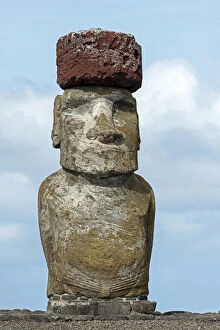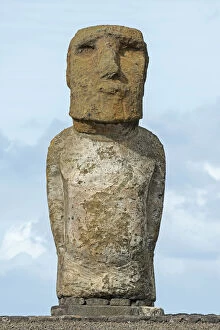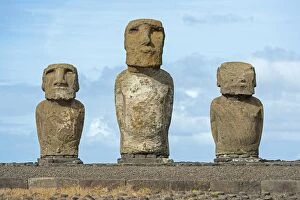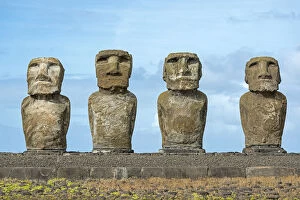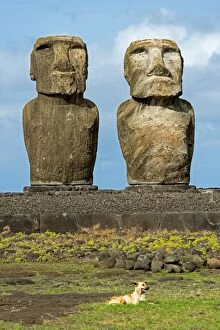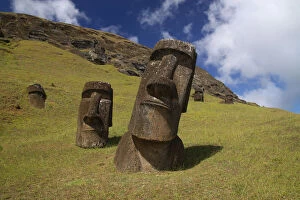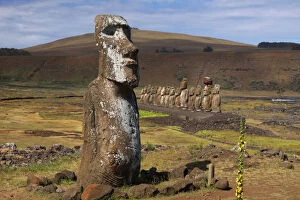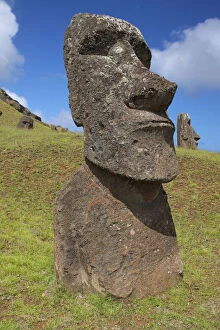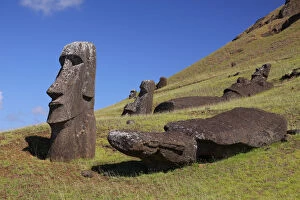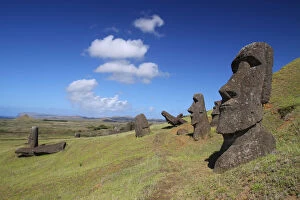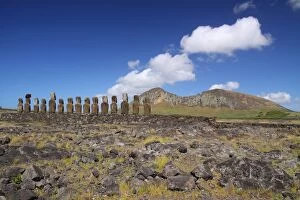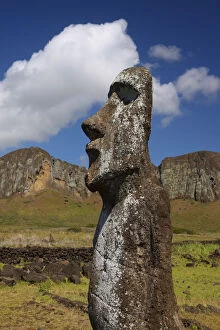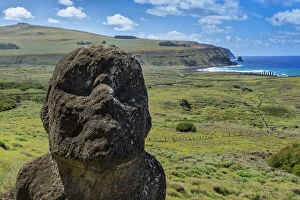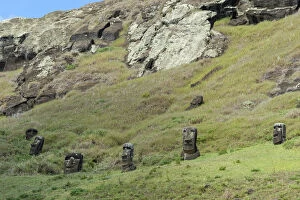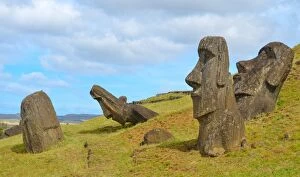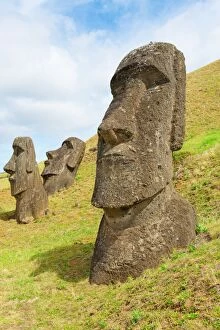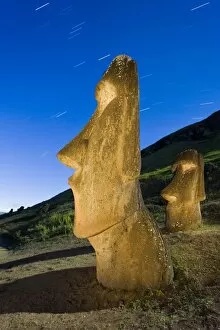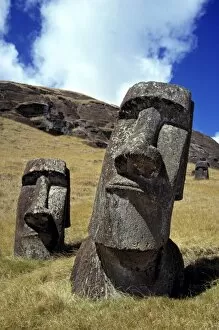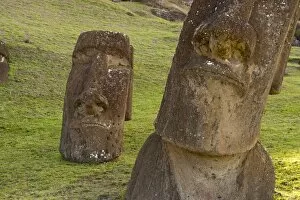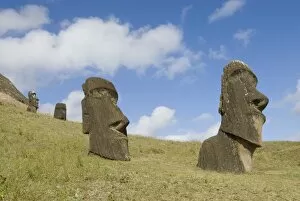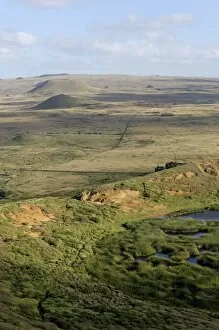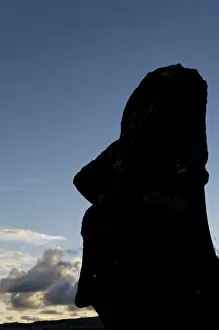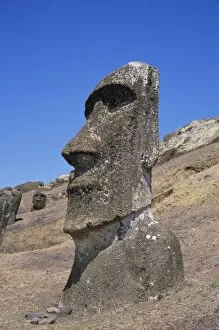Rano Raraku Collection (#2)
Rano Raraku, the quarry site for all moai statues on Easter Island (Isla de Pascua) in Chile, South America, is a mesmerizing UNESCO World Heritage Site
For sale as Licensed Images
Choose your image, Select your licence and Download the media
Rano Raraku, the quarry site for all moai statues on Easter Island (Isla de Pascua) in Chile, South America, is a mesmerizing UNESCO World Heritage Site. As you venture closer to this historical wonder, you are greeted by a close-up view of the majestic moai heads still residing within the crater from where they were quarried centuries ago. Carved meticulously from the walls of the crater on the southern slopes of Volcan Rano Raraku, these giant monolithic stone Moai statues stand as silent witnesses to an ancient civilization's artistic prowess. Each sculpture tells a unique story and showcases remarkable craftsmanship that has stood against time. As you explore further into this enchanting place, you will encounter moai sculptures in various stages of completion. The unfinished heads scattered along the outer south slopes of the crater offer a glimpse into the intricate process behind their creation, and is here that one can truly appreciate the dedication and skill required to transform colossal blocks of stone into awe-inspiring works of art. The significance extends beyond its artistic marvels; it serves as a testament to human ingenuity and cultural heritage. This sacred site holds immense value not only for Easter Island but also for humanity as a whole. At dusk, when golden hues paint the sky above this mystical landscape, one cannot help but feel humbled by its grandeur. A solitary Moai statue stands tall amidst nature's embrace on the slopes volcano—a sight that evokes both admiration and reverence. Visiting this extraordinary place in Chile allows us to connect with our past and reflect upon our shared history. It reminds us that even through adversity and isolation, human creativity can flourish—leaving behind enduring legacies like those found at Rano Raraku Volcano in Easter Island's magnificent Rapa Nui National Park.

